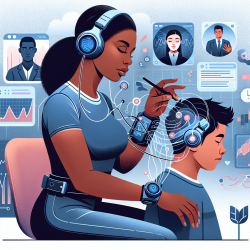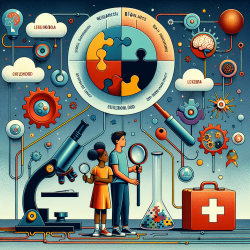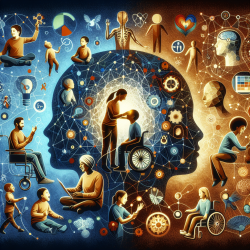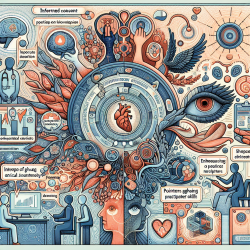Introduction
In the realm of speech-language pathology, data-driven approaches are paramount in crafting effective interventions. Recent research published in the journal Frontiers in Psychology sheds light on the profound impact literature can have on psychological development and mental health. The article, "Editorial: Reading, Literature, and Psychology in Action," explores the intersection of reading, literature, and psychology, offering insights that can be transformative for practitioners working with children.
The Role of Literature in Psychological Development
Literature serves as a "life simulator," allowing individuals to navigate complex social scenarios and emotions within the safe confines of their minds. This concept, highlighted by Keith Oatley, emphasizes the potential of literature to foster empathy and socio-cognitive skills, which are crucial for children’s development.
Research from the University of Liverpool's Center for Reading, Literature, and Society demonstrates that engaging with literary fiction can enhance theory of mind skills. These skills are vital for understanding others' perspectives and emotions, which are often areas of difficulty for children with developmental challenges.
Implementing Literature in Therapy
Practitioners can harness the power of literature by incorporating shared reading sessions into therapy. These sessions provide children with opportunities to explore emotions and social situations in a controlled environment. By discussing characters' experiences and decisions, children can develop a deeper understanding of empathy and social interactions.
- Shared Reading: Organize group reading sessions where children can discuss and analyze characters' actions and emotions.
- Literature Selection: Choose age-appropriate books that resonate with the children’s experiences and challenges.
- Guided Discussions: Facilitate conversations that encourage children to express their thoughts and relate them to their own lives.
Encouraging Further Research
While the current research provides a strong foundation, further studies are needed to explore the long-term effects of literature-based interventions. Practitioners are encouraged to collaborate with researchers to assess the impact of these interventions on various developmental outcomes.
Conclusion
Incorporating literature into therapeutic practices offers a promising avenue for enhancing children's socio-cognitive skills and emotional intelligence. By fostering a love for reading and providing a safe space for exploration, practitioners can contribute to positive developmental outcomes.
To read the original research paper, please follow this link: Editorial: Reading, Literature, and Psychology in Action.










